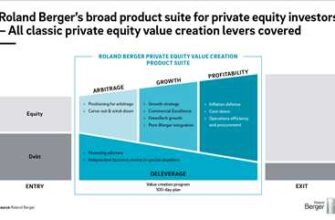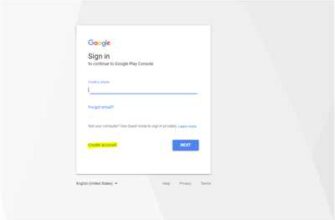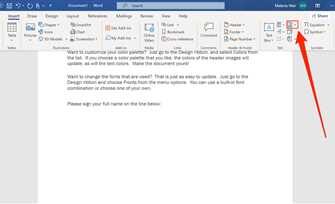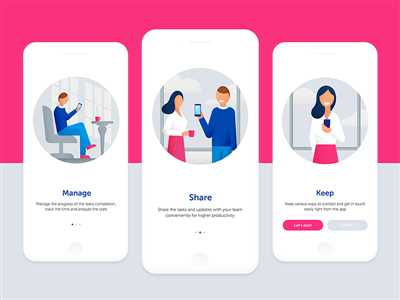
Are you thinking about becoming the owner of your own app? With the increasing popularity and monetization opportunities of mobile apps, it’s no question why many entrepreneurs are eager to get in on the action. But how exactly do you go about launching your own app and reaping the benefits? In this guide, we will walk you through the necessary steps to help you build, launch, and support your very own app.
The first and most important step is to have a clear understanding of what you want your app to be. Are you looking to build a game, a productivity tool, or a social media platform? Your idea will dictate the direction you take and the features you include. Once you have a solid concept in mind, it’s time to do some research to see if there’s a market for your product. Study your competitors, understand their strengths and weaknesses, and find ways to differentiate yourself. This level of detail-oriented research will help you establish a competitive edge right from the start.
Now that you have an idea and a market understanding, it’s time to decide how you will build your app. There are different options available, from hiring developers to using no-code platforms that allow you to build your app without any coding experience. Each option has its own set of benefits and drawbacks, so it’s important to weigh them carefully. If you’re willing to invest time and resources into learning development, hiring a team, or outsourcing the work might be the right choice for you. On the other hand, if you want to launch quickly and have a limited budget, a no-code platform might be the best fit.
When it comes to monetization, it’s essential to think about your business model from the beginning. Will you offer your app for free, with in-app purchases? Or will you charge users upfront? Understanding how you will make money through your app will help you make the right decisions about features, user experience, and marketing. It’s also important to keep in mind that having an app means you will need to support and update it on an ongoing basis. This requires ongoing resources and commitment, so make sure you’re ready for the long haul.
The next step is to find a name for your app. You want something catchy, memorable, and representative of your business. Once you have a name in mind, it’s important to check if it’s already taken by someone else. You can do a quick search in app stores, search engines, and social media platforms to see if there are any existing apps or businesses with a similar name. If your desired name is already taken, it’s back to the drawing board. It’s always a good idea to have several options in mind, just in case.
With your app idea, name, and business model in place, it’s time to start building. Whether you’re taking the DIY route or working with a development team, make sure to keep the end user in mind at every step. A user-friendly interface, seamless navigation, and a visually appealing design will go a long way. Once your app is built, it’s time to launch! This is where marketing becomes crucial. You can have the most amazing app, but if no one knows about it, it won’t do you any good. Establishing a marketing plan and reaching out to your target audience through various channels will help you get the word out and attract users.
In conclusion, owning your own app is an exciting and rewarding venture. It allows you to bring your ideas to life, reach a large audience, and potentially generate revenue. However, it’s important to approach app ownership with a clear understanding of the competitive landscape, the resources required, and the ongoing commitment needed to support and update your product. By following the steps outlined in this guide, you’ll be well on your way to becoming a successful app owner. Good luck!
- I have an idea for an app. Now what? Your app launch guide
- Research is key
- Define your app’s name and benefits
- Build the right team and find the right tool
- Keep the user in mind
- Fund your app launch
- Market your app
- Monetization options
- Launch your app
- Top 5 benefits to build your own mobile app
- 2 Detail-oriented Market research
- What are the top apps in your niche?
- Who are your competitors and what makes them successful?
- Step 15 Further development and support
- 1. Study the market
- 2. Keep your users in mind
- 3. Stay open to feedback
- 4. Seek support and assistance
- 5. Consider further monetization options
- Video:
- How To Build An App: Everything You Didn’t Know You Needed To Know
I have an idea for an app. Now what? Your app launch guide
So you have a great idea for an app, but what’s the next step? In this guide, we’ll walk you through the process of launching your app and turning your idea into a reality.
Research is key
Before diving into the development process, it’s essential to conduct thorough research. This means understanding your target market, identifying the competitive landscape, and studying similar apps in the market. By doing so, you’ll gain valuable insights into what works and what doesn’t, allowing you to make informed decisions throughout the development and launch process.
Define your app’s name and benefits
One of the most important steps in launching your app is defining its name and, more importantly, its benefits. Your app’s name should be catchy, descriptive, and easy to remember. Additionally, understanding and clearly communicating the benefits your app offers will help differentiate it from competitors and attract potential users.
Build the right team and find the right tool
Building an app is not a one-person job. You’ll need a team of dedicated professionals who are willing to help you bring your idea to life. Whether you decide to hire developers or use a no-code tool, it’s important to find the right resources to support your app’s development.
Keep the user in mind
Throughout the development process, always keep the end-user in mind. Understand their needs, preferences, and pain points. This will help you tailor your app to meet their expectations and provide them with a seamless and enjoyable experience.
Fund your app launch
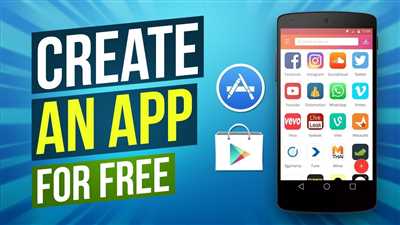
Funding is an important aspect of launching an app, whether you decide to self-fund or seek external investment. Take the time to explore different funding options and choose the one that suits your business and goals the most.
Market your app
Having a great app isn’t enough; you need to market it effectively to reach your target audience. Utilize various marketing channels such as social media, app store optimization, influencer partnerships, and content marketing to create awareness and drive app downloads.
Monetization options
Consider different monetization options for your app, such as in-app purchases, subscriptions, or advertising. Study your competitors and understand what works best for your target audience to choose the right monetization strategy for your app.
Launch your app
Finally, it’s time to launch your app! Make sure you have all the necessary accounts established, such as developer accounts and app store accounts. Pay attention to detail and thoroughly test your app before submitting it for review. Once your app is live, gather user feedback and iterate to improve the app based on their input.
Launching an app can be a complex process, but by following this guide and taking each step carefully, you can turn your app idea into a successful business and be on your way to becoming a top app owner!
Top 5 benefits to build your own mobile app
Building your own mobile app can be a game-changing decision for your business. The world of mobile apps is constantly evolving, and having your own app allows you to stay ahead of the competition and establish a strong presence in the market. Here are the top 5 benefits of building your own mobile app:
- Increased understanding of your users: When you have your own mobile app, you have direct access to your users. This means you can gather valuable data and insights about their preferences, behavior, and needs. This understanding can help you further tailor your products and services to meet their expectations.
- Become an industry leader: Launching your own mobile app allows you to position yourself as an industry leader. Having a well-designed and functional app shows that you are detail-oriented and willing to go the extra mile to provide the best experience for your users.
- No-code development options: You don’t need to be a coding expert to build your own mobile app. There are now many no-code development platforms available that allow you to create an app without writing a single line of code. This means you can focus on your business idea and launch your app without the need for extensive technical knowledge.
- Monetization opportunities: Mobile apps offer various monetization options, such as in-app purchases, subscriptions, or showing ads. By having your own app, you can explore these revenue streams and generate additional income for your business.
- More room for marketing and customer support: Having your own app means you have more control over your marketing efforts and customer support. You can use push notifications to reach out to your users with important updates or promotional offers. You can also provide dedicated customer support within the app, offering a seamless experience for your users.
Building your own mobile app is an important step for any business in today’s mobile-driven world. It allows you to establish a competitive edge, target a different market segment, and better serve your customers. If you’re willing to take advantage of these benefits, it’s time to start thinking about developing your own app.
2 Detail-oriented Market research
When it comes to launching an app, having a detailed market research is crucial. Without understanding the competitive landscape and the needs of your target users, it’s difficult to build the best app possible.
Market research means studying the market and conducting thorough research to find out what is already available. This step is important because there are already thousands of apps out there, and you need to know what makes your app different and appealing. You want to find out if there is room for your app in the market, and if there is a demand for it.
A detail-oriented market research will help you answer questions like:
What are the top apps in your niche?
By studying the top apps in your niche, you can get an idea of what features and functionality users are looking for.
Who are your competitors and what makes them successful?
By understanding your competitors, you can learn from their successes and mistakes, and find ways to differentiate your app from theirs.
Further, market research allows you to identify potential challenges and opportunities in your industry. It helps you understand your target users better, their preferences, and their pain points.
Moreover, market research is not only about understanding your users, but also about understanding the monetization options available to you. By studying the different monetization strategies that businesses in your industry are using, you can decide which one is the best for your app.
To conduct a detail-oriented market research, you can start by contacting your potential users and asking them questions about their preferences and needs. There are also many market research tools and services available that can help you gather the necessary data and insights.
Remember, having a solid understanding of the market and your target users will help you make informed decisions about your app development, marketing strategies, and business goals. It will also help you build an app that meets the needs of your users, and generate revenue.
Now that you have done your market research, it’s time to move on to the next step: building your app. But before that, let’s dive into the importance of detail-oriented app development in the next section.
Step 15 Further development and support
Building your own mobile app is just the first step. Once you have launched your app, there are a number of important considerations to keep in mind for further development and support.
1. Study the market
Before deciding on what further development options to pursue, it is important to study the market and understand the competitive landscape. Research similar apps and their monetization strategies to get an idea of what works best in your target market.
2. Keep your users in mind
Always keep the needs and preferences of your users at the forefront of your mind. Think about how your app can best serve them and what features or improvements would enhance their experience.
3. Stay open to feedback
Be open to feedback from your users and willing to make necessary adjustments or updates based on their suggestions. This will help you establish a loyal user base and ensure that your app remains relevant and valuable.
4. Seek support and assistance
Don’t be afraid to reach out to experts or professionals for support and assistance. Whether it’s technical help or guidance with marketing and promotion, there are always resources available to help you navigate the challenges of app ownership.
5. Consider further monetization options
Once you have launched your app, you may want to explore additional monetization options to further support your business. This could include in-app purchases, subscriptions, or partnerships with other businesses.
Overall, the key to successful further development and support of your app is to remain detail-oriented and customer-focused. By understanding your market, staying open to feedback, and constantly improving your product, you can ensure that your app stands out and becomes a top choice for smartphone users.
Remember, there is always room for improvement, and by continually building on your app’s success, you can stay ahead of the competition and continue to find new ways to keep your users engaged and satisfied.
If you have any further questions or need assistance with the development and support of your app, do not hesitate to reach out and contact professionals in the field. They will be able to provide you with the guidance and expertise you need to make the best decisions for your app and business.


